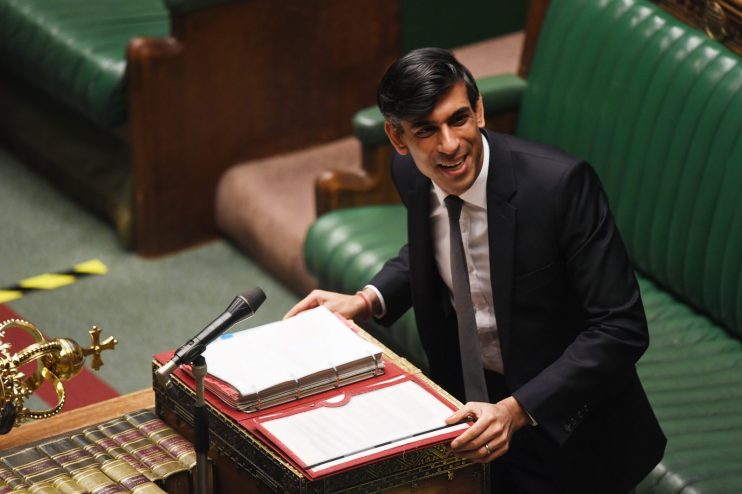Rishi Sunak calls for return to ‘sustainable finances’ ahead of March budget

Rishi Sunak has reiterated the need to return to “sustainable” levels of government spending as he foreshadows future Budget cutbacks.
Sunak told City A.M.’s The City View podcast in an exclusive interview that the Treasury’s £280bn Covid spending over the past year was “the right thing to do”, but that “over time” he had to get the nation’s finances back under control.
And he slapped down economists urging him to take greater advantage of low-interest rates, saying we should show “humility” and accept it is difficult “to know what will happen” in the future, with the UK exposed to even a minor uptick.
“Over time I think it’s important public finances are sustainable and lots of people have slightly different versions of what sustainable looks like, but I think they agree it should be sustainable over time and that’s something I have to have regard to as the person responsible for the nation’s finances,” he said.
The Office for Budget Responsibility is predicting a £394bn Budget deficit this fiscal year, which will be seven-times larger than the 2019-20 deficit.
This comes to 19 per cent of annual GDP, which makes the deficit equivalent to the UK’s war-time spend in 1944/45.
Sunak will unveil a new Budget in March, however a government source told The Times yesterday that any tax potential tax rises to cut the deficit would not be involved as the country comes out of the latest Covid lockdown.
Some economists have said the UK’s record levels of debt are manageable due to record low interest rates around the globe.
Before the Open newsletter: Start your day with the City View podcast and key market data
The Bank of England’s official borrowing rate is at 0.1 per cent, the European Central Bank’s is -0.5 per cent and the US’ Federal Reserve’s target range is 0 to 0.25 per cent.
However, the chancellor said “no one really knows exactly” why rates have stayed stubbornly low since the 2008 financial crash and that it was not a safe bet to assume they would always remain in that position.
“The fact that we don’t fully understand it, and no one completely agrees on it, probably means we should have some humility about saying how long we think it will last or what might happen to them in the future,” he said.
“It’s worth bearing in mind the sensitivity we have to changes in those [interest] rates, because both through the quantitative easing, and the amount of debt we have linked to inflation, and just generally the fact rates are very low – as things change that will have an impact on our day-to-day public finances.
“Like any business that is considering whether to have floating o fixed rate debt, as a country we’re exposed to the same things – I have to be watchful of that.”
It was speculated last year that Sunak was preparing to tax investment property owners and Britain’s wealthiest to help pay for the country’s Covid spending.
The independent Office for Tax Simplification recommended raising capital gains taxes to raise a projected £14bn in government revenue.
Labour shadow chancellor Anneliese Dodds has said that the government should not consider raising any taxes until the UK economy’s recovery is much further advanced.
Warwick Lightfoot, head of economics at the centre-right Policy Exchange think tank, said: “What UK economic policy makers need to accept is that fiscal policy has a role in macroeconomic demand management.
“Post Covid, the UK should pursue a growth strategy based on stimulating growth through macroeconomic demand management, with fiscal policy and tax cuts playing a central role in improving not just demand but the functioning of the supply side of the economy and its structure of incentives.
“An agenda of retrenchment and tax increases is redundant and would be counterproductive.”